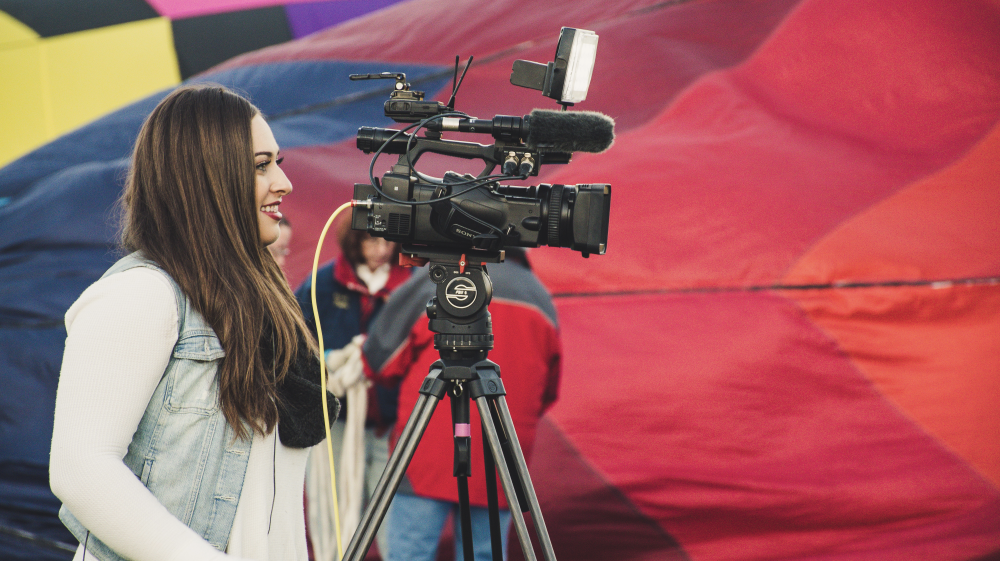
Being in the spotlight during a media interview can be a crazy stressful experience. Even the best spokespeople screw up at times, so what chance do you have, right?
Wrong!
Being a good spokesperson without a doubt does take time and practice, so put in the work. But there are a few things you can do to make sure you nail that media interview.
Let me first say that everyone (and I mean everyone) should have a professional media trainer or coach help you with media training. Great spokespeople are made over a long period of time and even the best spokespeople need to practice over and over.
But, there are ways to prepare you for that next interview. Below are tips for successful media interviews so listen up and start practicing:
It’s easy, especially for beginner spokespeople, to think they are not in control of the conversation or interview. This couldn’t be further from the truth, unless you allow the journalist to take control. It’s up to you to delivery your messages, engage the reporter, set the boundaries and deliver a kick-ass interview. You want it to be a win-win for both you and the reporter, but it’s up to you to control the process.
This is something we ALL need to keep in mind, and not just for the first 30 seconds of the interview. Have you ever started a meeting sitting upright and paying attention, and all of a sudden you find yourself slouching a bit and looking down at your computer or notepad? It’s easy to forget about your body language halfway through an interview, but don’t let yourself do it. Show that you’re staying engaged, maintain open an open posture, and be present for that moment. The majority of interviews only last a few minutes at most, so stick with it and let your body do the talking.
If you think you’ve practiced your messaging enough, go back and practice again. And then again. If you can’t deliver your messaging in a smooth and coherent way, then you’re doing more damage than good. You’ve got so much to pay attention to, manage and remember during an interview that you want your messaging to be second nature. You don’t want to be stuck trying to remember your key points in the middle of an interview. So, rehearse, practice and memorize as much as possible leading up to the interview.
This is a technique reporters use all the time. You’ll finish answering their question, delivering a perfect response, and they sit quietly, making you feel like you should be saying something else. Then what do you do? You start to talk again. If you have more quality information to add or have a plan to transition to a new topic or message point, that’s great. But for beginners, don’t fall into this trap. Make your point, answer the question, and don’t be tricked in to giving too much information.
Another trap beginners fall in to is using negative language, especially with how journalists pose many questions. You absolutely want to correct misinformation, but not by denouncing the language that was just used. The problem with that is you’re repeating negative language and associating that language with your brand. For example:
Reporter: “It’s been reported that your company discriminates with its hiring practices. Is that true?”
Spokesperson: “No, we do not discriminate against any person and work with some of the best professionals in the industry.”
Instead of repeating the negative language and reinforcing that negative opinion, a more appropriate response would have been:
“We are an equal opportunity employer and are proud of our diverse workforce which brings some of the industry’s best talent together.”
See the difference in driving home positive language that reinforces YOUR messaging and not the reporter’s question? Stick to talking about what you are using positive language, and avoid language that
We all want to sound smart when we talk, but sounding smart isn’t the point of an interview. Getting your messages across in a meaningful way that resonates with audiences is your objective. That means you need to speak clearly, make your points simple and easy to understand, and not use jargon, or words people don’t typically use in everyday conversation.
More words does NOT always equal a better answer. If you take more than 4-5 short (and I mean short) sentences to answer a question, it’s taking too long. Most people will tune out and you’re likely not getting your key message across anyway. Keeping your answers short allows you to drive you key messages home, and then transition to additional topics that YOU want to cover, giving you control of the interview.
Remember to practice. Find a mirror, take a video, or ask a friend or colleague to sit down and interview you. The more you practice and mess up, the better chance you have at nailing that interview!
As you’re training to be the best spokesperson EVER, here are some recent blogs to help you out with your public relations efforts:
– Writing The Perfect Headline
– Tips For Working With Media
– Pitching Media Like The Pros
– Tips For Nailing Media Relations
– Creating The Best Media Hook
– Wake Up. Kick Ass. Repeat.
– How to Create Content That Engages Audiences and Builds Brand Trust Quickly
And for the latest coronavirus crisis communications tips:
– Crisis Planning Tips During Coronavirus
– Internal Communications During A Crisis
Don’t forget to follow us @TCStrategic on Twitter, Facebook, Instagram and LinkedIn.